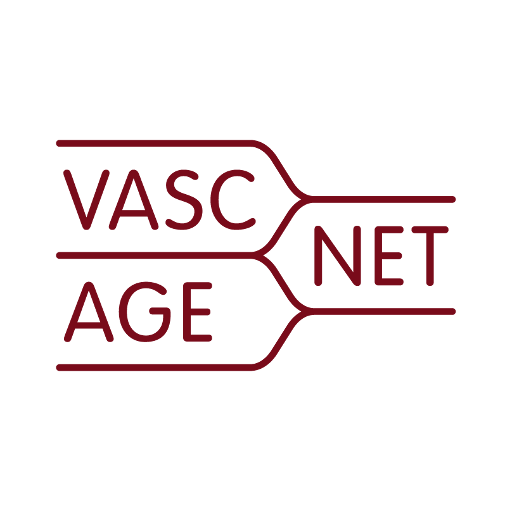So far, three training schools have been organized successfully by VascAgeNet. Summaries for the three training schools can be found here:
- Training school 2021 in Split (Croatia): https://vascagenet.eu/first-vascagenet-training-school-2021
- Training school 2022 in Thessaloniki (Greece): https://vascagenet.eu/second-vascagenet-training-school-2022.
- Training school 2023 in Limassol (Cyprus): https://vascagenet.eu/third-vascagenet-training-school-2023
We thank all trainees and trainers for their active participation! We keep you update about future training schools.
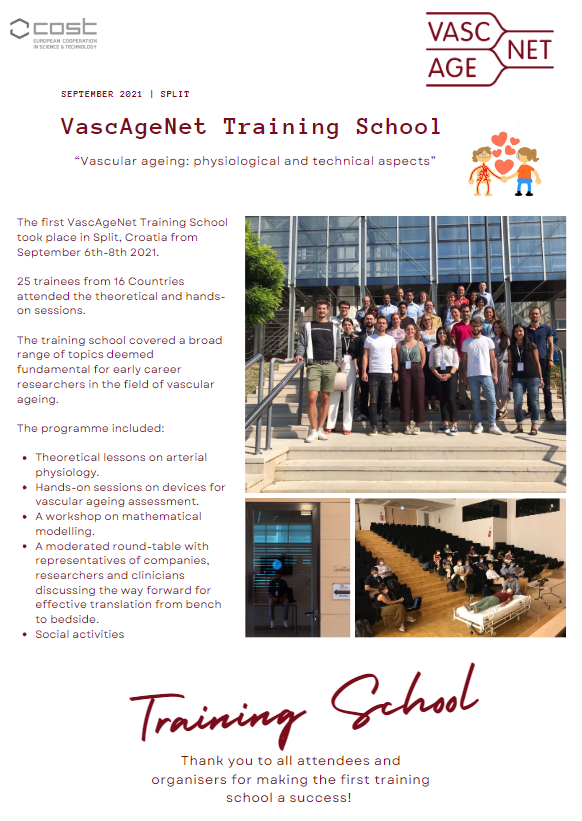
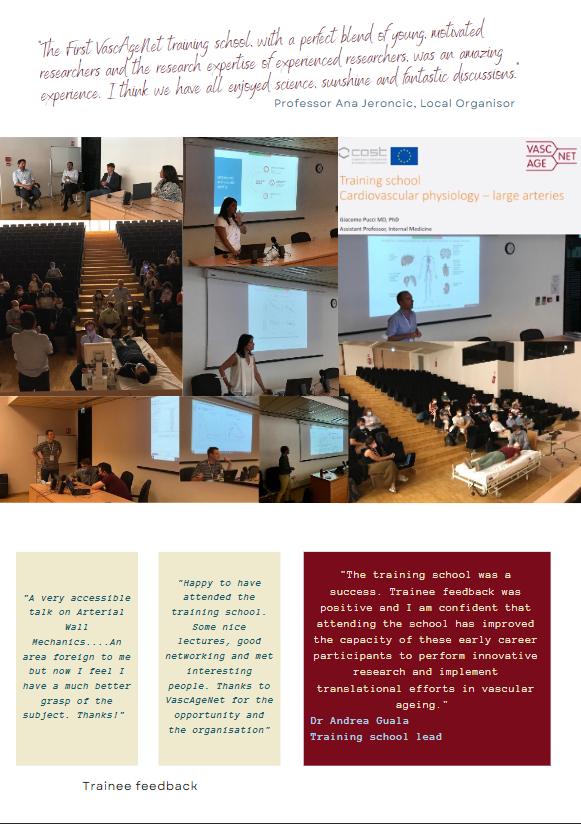
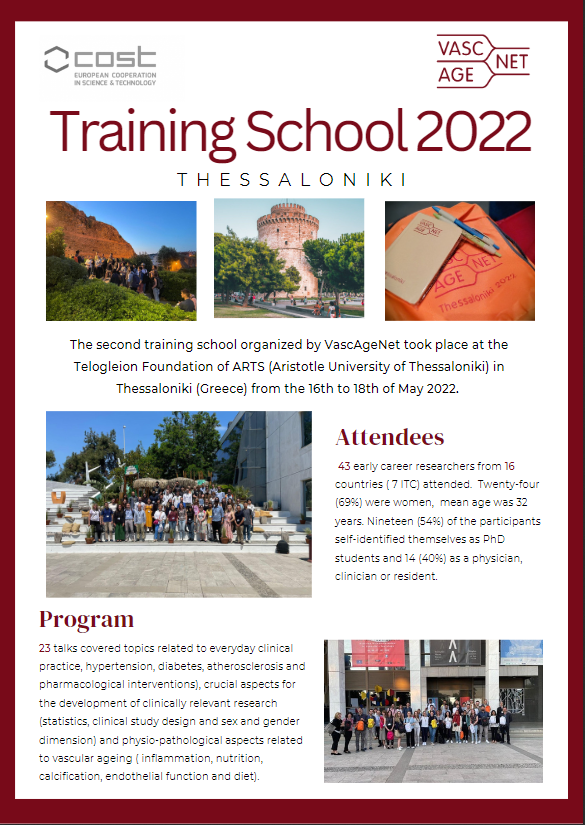
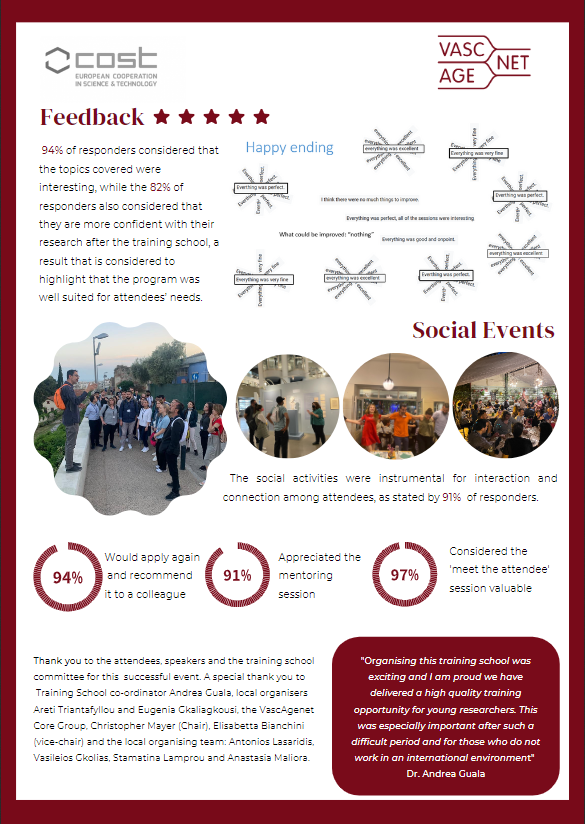
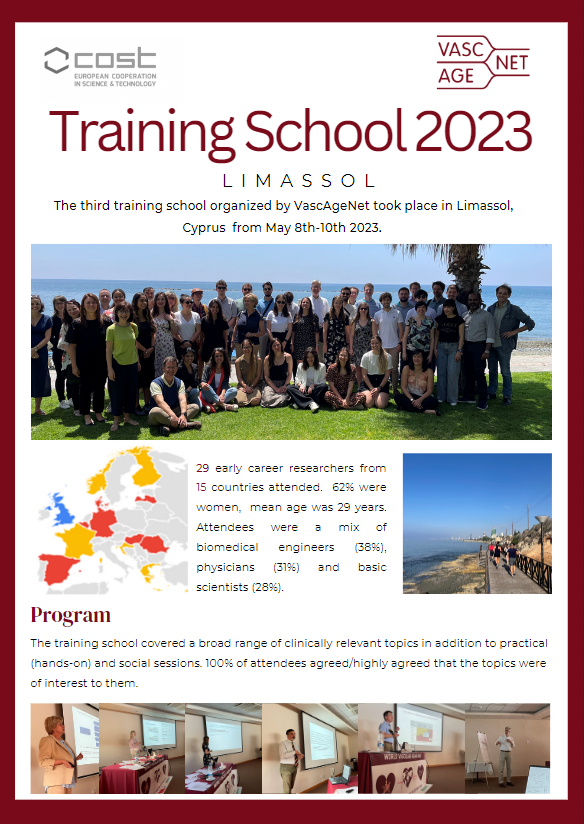
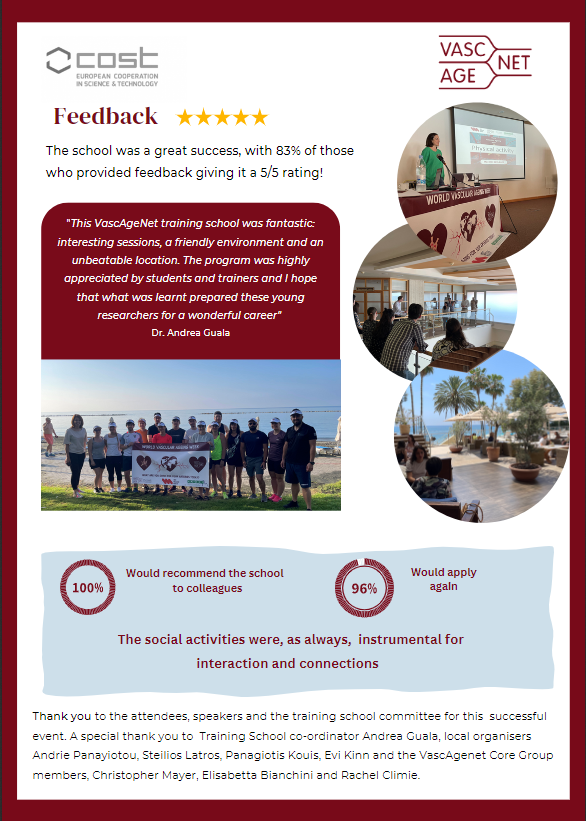
The applications for the third training school organised by VascAgeNet are now open and will close the 10th of February 2023 at 5 PM CET. The training school will take place at the Poseidonia Hotel (see below) in Limassol (Cyprus) between the 8th and 10th May 23.
The training school will cover a broad range of clinically relevant topics deemed fundamental for young researchers, innovators and clinicians in the field of vascular ageing and will include practical (hands-on) and social sessions.
The training school is intended for early career researchers and innovators (< 40 years old at 15th of February 2023). Only trainees from (1) COST Full Members/COST Cooperating Members and (2) Action MC Observers from NNC are eligible (see Member Countries). Trainees shall be engaged in an official research programme as a PhD or postdoctoral fellow or can be employed to/affiliated with an institution/organization/legal entity with clear research orientation.
For a summary of the first training school in 2021 see https://vascagenet.eu/first-vascagenet-training-school-2021, and for the second one in 2022 see https://vascagenet.eu/second-vascagenet-training-school-2022.
Below you can find the final program:
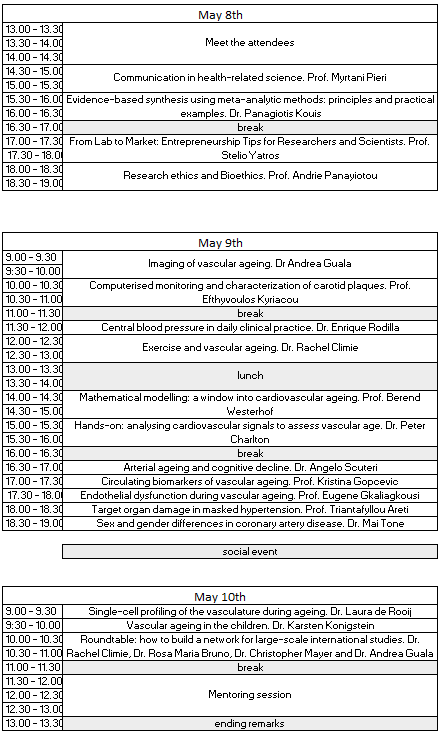
Applications (Deadline: closed)
Interested researchers have to fill the application form available on VascAgeNet website. The application includes the following documents:
- A curriculum vitae, including past and present studies and research as well as a complete list of publication (max 3 pages).
- A short motivation letter (200 max words)
Applications will be evaluated by a committee of experts. On top of curriculum vitae and motivation letter, the experts will consider to balance applicants’ gender, ethnicity and countries of origin. Priority will be given to applicants that had not participated in the first two training schools.
Successful applicants will receive a monetary compensation covering the cost of travelling and a standard daily allowance of 150 euros, according to the rules (see Annex 1, section 1.2 and 1.3) of the COST Association. The local organising committee has negotiated very good fares at the Poseidonia Hotel. Nonetheless, attendees are free to choose where to stay.
Notifications of acceptance or rejections will take place on February 20th.
Andrea Guala (VascAgeNet Training Coordinator),
Andrie Panayiotou, Stelios Iatros, Panagiotis Kouis and Evi Kinn (local organizers) and
Christopher C. Mayer (VascAgeNet Chair).
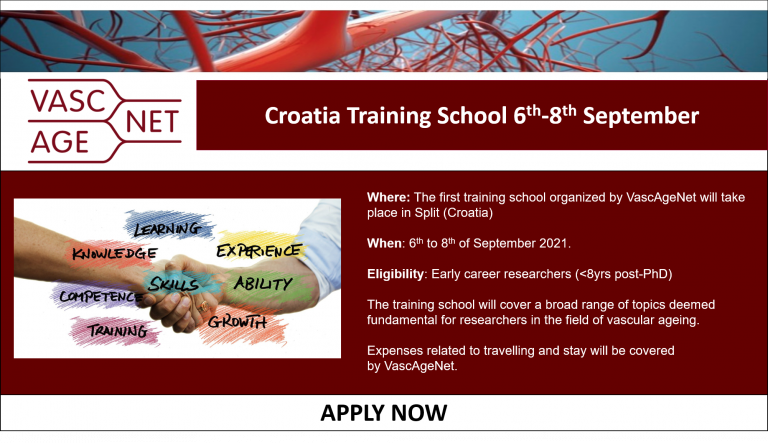
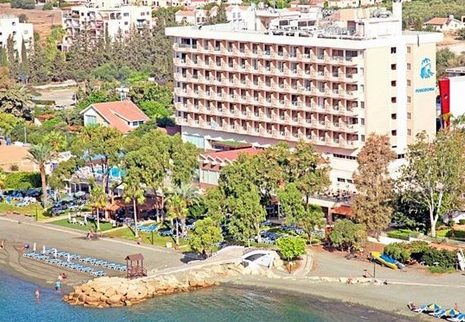
The training school will cover a broad range of topics deemed fundamental for early career researchers in the field of vascular ageing. Indeed, during three days, there will be theoretical lessons on arterial physiology, hands-on sessions on devices for vascular ageing assessment, a workshop on modelling and a moderated round-table with representatives of companies, researchers and clinicians discussing the way forward for effective translation from bench to bedside.
A preliminary program is shown below:
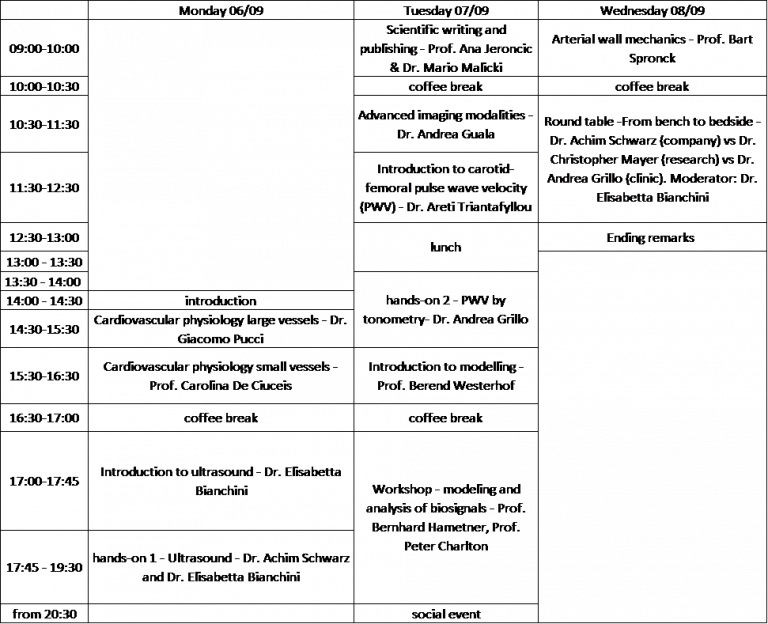
Applications (deadline August 10th – application closed):
The training school is intended for early career researchers (< 8 years since PhD defense). Only trainees from (1) COST Full Members/COST Cooperating Members and (2) Action MC Observers from NNC are eligible (see Member Countries). Trainees shall be engaged in an official research programme as a PhD or postdoctoral fellow or can be employed to/affiliated with an institution/organization/legal entity with clear research orientation. Interested researchers have to fill the application form available on VascAgeNet website (application closed).
The application includes the following documents:
- A curriculum vitae, including past and present studies and research as well as a complete list of publication.
- A short motivation letter (2000 max words)
Applications will be evaluated by a committee of experts. On top of curriculum vitae and motivation letter, the experts will consider to balance applicants’ gender, ethnicity and origin (in terms of country). Successful applicants will receive a monetary compensation covering the cost of travelling and a standard daily allowance, according to the rules of the COST Association (see COST Vademecum, section 5.1 and 6.2). Notifications of acceptance or rejections will take place on August the 14th.
Note regarding the pandemic:
We are well aware that there is risk for escalation of the current epidemiological situation and thus we reserve the right to cancel the event. Thus, we ask the successful applicants to not book travel and accommodation before you receive the official invitation. Then, we will ask attendees to book with a good cancellation policy, as we will not be able to cover expenses in case the training school will not take place. We will require applicants to show the EU digital COVID-19 certificate (also known as “green pass”).
Andrea Guala (responsible for training activities), Ana Jeroncic (local organizer) and Christopher Mayer (VascAgeNet chair).
Stay tuned and we are looking forward to your applications (application closed)!
Training school organizer: Andrea Guala (see section on the VascAgeNet Team)
Scientific Committee: Ljuba Bacharová, Rosa Maria Bruno, Rachel Climie, Andrea Guala, Ana Jerončić, Christopher Mayer, Ioana Mozos, Elena Osto, Giacomo Pucci
Local Organizing Committee: Ana Jerončić, Mario Podrug, Ivana Mudnić, and Pjero Koren on behalf of the NormPreven project
Co-Organizers:
- HRZZ project NormPreven
- University of Split School of Medicine
- University of Split, University Department of Health Studies
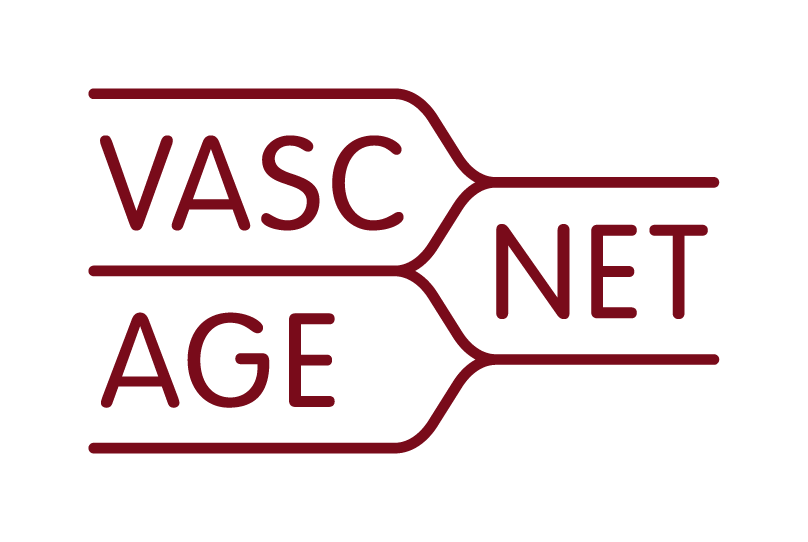 |
 |
 |
 |
